TCA Therapeutic Drug Monitoring Calculator
TCA Therapeutic Range Calculator
Why Therapeutic Drug Monitoring Matters for Tricyclic Antidepressants
Tricyclic antidepressants (TCAs) like amitriptyline, nortriptyline, and desipramine were among the first medications used to treat depression. But unlike newer drugs, they don’t play nice with the body. A single extra pill can push someone into life-threatening territory. That’s why therapeutic drug monitoring isn’t just helpful-it’s essential.
TCAs have a razor-thin margin between working and poisoning. The difference between a therapeutic dose and a lethal one can be as small as 100 ng/mL in the blood. For example, amitriptyline levels between 80-200 ng/mL are considered safe and effective. But once you hit 500 ng/mL, the risk of cardiac arrest, seizures, or coma skyrockets. And here’s the scary part: people don’t always feel like they’re overdosing. They might just feel drowsy, dry-mouthed, or dizzy-symptoms easily mistaken for side effects, not warning signs.
How TCAs Turn Deadly: The Toxic Mechanism
TCAs work by boosting serotonin and norepinephrine in the brain. But when too much builds up, they start blocking other receptors too. This isn’t just about mood-it’s about your heart, your brain, and your breathing.
At toxic levels, TCAs interfere with sodium channels in heart muscle cells. This slows down electrical signals, causing the QRS complex on an ECG to widen beyond 100 milliseconds. That’s a red flag. Wider than that? You’re looking at ventricular arrhythmias, possibly torsades de pointes-a chaotic heartbeat that can kill in minutes. They also block potassium channels, lengthening the QT interval and increasing the chance of sudden cardiac arrest.
On top of that, TCAs cause anticholinergic effects: rapid heartbeat, blurred vision, urinary retention, confusion, and fever. In older adults, these symptoms can look like dementia or a stroke. Many end up in the ER because no one connected the dots between their meds and their symptoms.
What Therapeutic Drug Monitoring Actually Measures
TDM isn’t just checking if a drug is in your blood. It’s about timing, context, and interpretation.
First, you need a blood draw at the trough-right before your next dose. This gives the most accurate picture of your steady-state level. Taking the sample too early or too late? The result is useless.
Then, labs measure not just the parent drug but its metabolites too. Amitriptyline breaks down into nortriptyline, which is also active. Nortriptyline’s safe range is 50-150 ng/mL. Desipramine? 100-300 ng/mL. Each drug has its own window. Mixing them up leads to dangerous mistakes.
Some labs also calculate the metabolite-to-parent ratio (MPR). A high MPR might mean you’re a fast metabolizer-your body clears the drug quickly, so you might need a higher dose. A low MPR? You could be a slow metabolizer, and even a normal dose could be toxic. This is where genetics come in.
Genetics Can Make or Break Your TCA Therapy
Two genes-CYP2D6 and CYP2C19-control how your liver breaks down TCAs. And people vary wildly. Some are poor metabolizers. Others are ultrarapid. That means two people taking the same dose can have blood levels that differ by 20 to 30 times.
A poor metabolizer might hit 400 ng/mL on a 75 mg daily dose of amitriptyline. An ultrarapid metabolizer might only reach 50 ng/mL on the same dose and feel no benefit. Without genetic testing, you’re guessing. With it, you can start at the right dose instead of playing dangerous catch-up.
As of 2023, about 32% of U.S. academic hospitals now combine TDM with pharmacogenetic testing. That’s cutting the time to reach a safe, effective dose by 40%. For someone with treatment-resistant depression, that means weeks or months of suffering avoided.
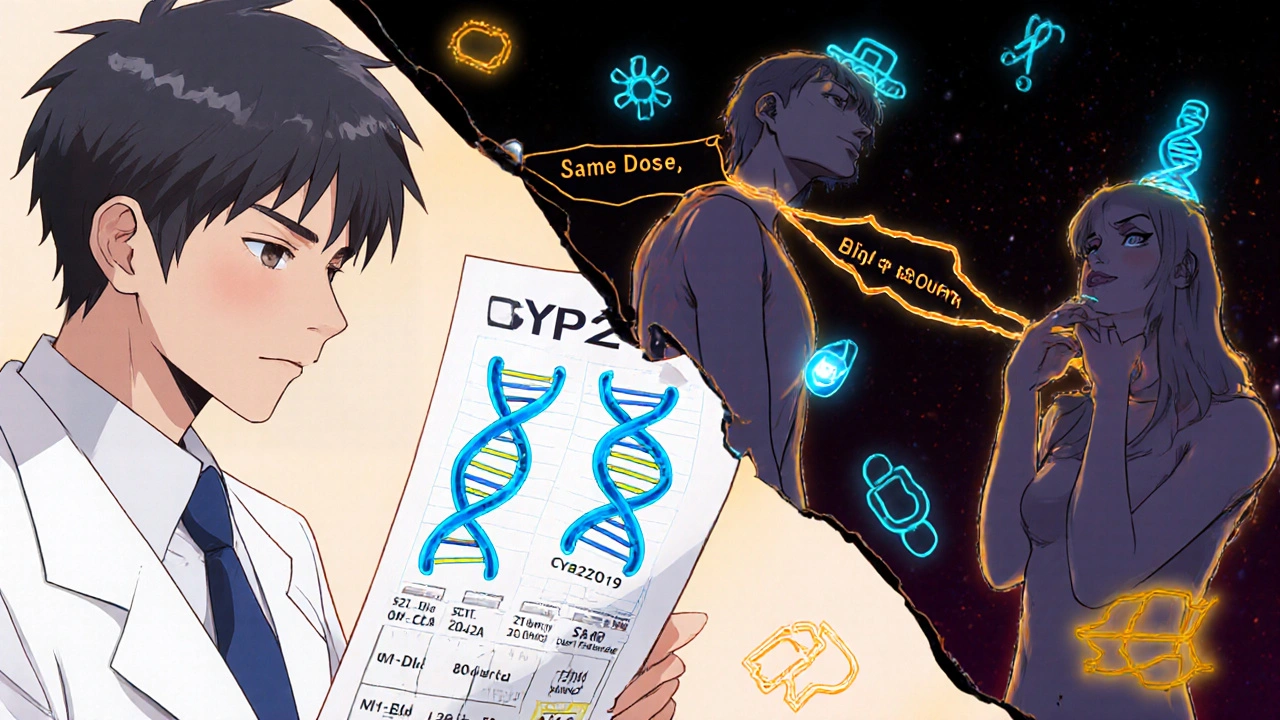
Who Needs TDM the Most?
Not everyone on TCAs needs regular blood tests. But certain groups are at much higher risk:
- Elderly patients: Over 40% of TCA users are over 65. Their livers process drugs slower. They’re more sensitive to anticholinergic effects. One study showed elderly patients on TCAs are three times more likely to fall or develop delirium if levels aren’t monitored.
- People on multiple meds: SSRIs, antifungals, and even some heart medications can block CYP2D6. That causes TCA levels to spike unexpectedly.
- Those with kidney or liver disease: Reduced clearance = higher buildup.
- Patients with treatment-resistant depression: TCAs are often the last resort. If you’re on one, you’re already in a high-risk group.
Young, healthy adults on short-term TCA therapy? Less critical. But if you’re on it long-term, or have any of the above risk factors-get monitored.
What Happens When TDM Is Ignored
Real cases tell the real story.
At Johns Hopkins, an 82-year-old woman was on 150 mg of nortriptyline daily. Her levels hit 185 ng/mL-above the 150 ng/mL ceiling. She was confused, had a fast heartbeat, and her ECG showed early QRS widening. Her dose was cut to 75 mg. Within days, her symptoms vanished. No ICU. No cardiac arrest.
But then there’s the case of a 42-year-old woman with amitriptyline levels at 190 ng/mL-technically “therapeutic.” Yet her QRS widened to 140 ms. She had a seizure. Why? Because individual sensitivity varies. That’s why TDM alone isn’t enough. You must correlate levels with clinical signs. A high level with no symptoms? Maybe watchful waiting. A normal level with ECG changes? Treat like a crisis.
At the Victorian Poisons Information Centre, 65% of severe TCA poisonings happened because TDM wasn’t done-or was misread. One nurse practitioner on Reddit said she’s prevented three ICU admissions this year just by checking levels before symptoms got bad.
The Challenges of Getting TDM Right
Even when doctors know they should test, things go wrong.
- Timing errors: 28% of samples are drawn before steady-state levels are reached. That’s usually after 5-7 days of consistent dosing. Testing too soon? Results are meaningless.
- Incomplete paperwork: Nearly a third of TDM requests don’t list current doses. A quarter don’t say when the last dose was taken. Labs can’t interpret results without that.
- Delayed results: Most hospitals take 24-48 hours to return results. In an emergency, that’s too long. That’s why ECG changes are the immediate red flag-not waiting for a lab report.
- Cost: A single TDM test runs $150-$250 in the U.S. Insurance doesn’t always cover it. In places with limited resources, it’s a luxury.
And here’s the kicker: 20% of dosage changes based on TDM are wrong-because the clinician didn’t understand the data.
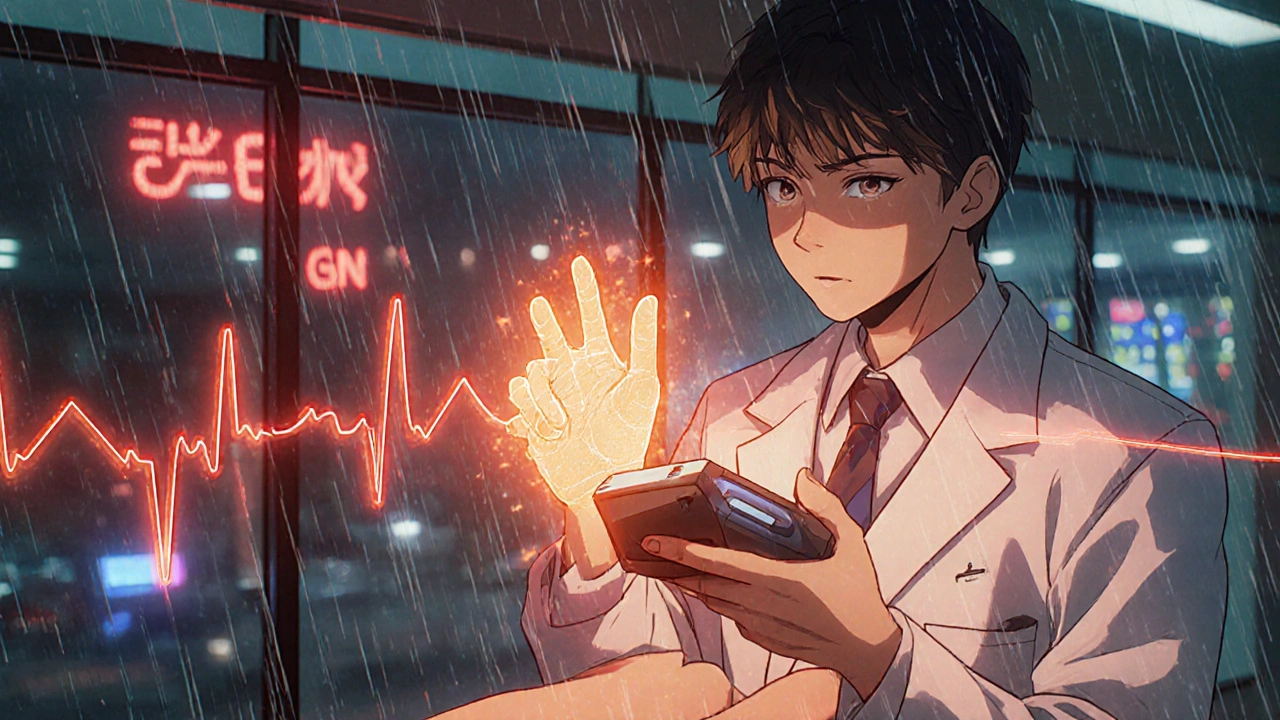
What’s New in TDM Technology
There’s hope on the horizon.
Siemens Healthineers just launched a pilot handheld device in Europe that gives TCA results in 20 minutes-down from two days. Sensitivity? 5 ng/mL. That’s precise enough to catch early toxicity.
AI tools like PsychX Analytics are now combining TDM results with ECG data, age, weight, and other meds to predict toxicity risk. It’s not perfect, but it’s helping doctors spot danger before it hits.
And research is moving toward continuous monitoring-tiny sensors that measure TCA levels in interstitial fluid. Early trials show 92% accuracy compared to blood tests. Imagine a patch that tells your doctor in real time if your levels are climbing.
What You Should Do If You’re on a TCA
If you’re prescribed a tricyclic antidepressant:
- Ask if TDM is recommended for you. Especially if you’re over 60, on other meds, or have liver/kidney issues.
- Make sure your blood is drawn at the right time-right before your next dose, after at least 5 days of consistent dosing.
- Keep a list of all your medications, including supplements. Even over-the-counter antihistamines can interfere.
- Know your symptoms. If you feel dizzy, your heart races, or you’re confused-don’t wait. Get an ECG.
- Ask about genetic testing. If your doctor hasn’t mentioned it, bring it up. It could prevent years of trial and error.
TCAs aren’t going away. They’re still the best option for neuropathic pain and treatment-resistant depression in older adults. But their danger demands respect. TDM isn’t bureaucracy-it’s a safety net. And in this case, it’s the difference between healing and tragedy.
When to Call for Help
If you or someone you know is on a TCA and experiences:
- Heart palpitations or irregular heartbeat
- Severe dizziness or fainting
- Confusion, hallucinations, or seizures
- Difficulty urinating or extreme dry mouth with fever
Seek emergency care immediately. Don’t wait for a lab result. Call poison control. Get an ECG. Sodium bicarbonate can reverse the cardiac effects-but only if given fast enough.
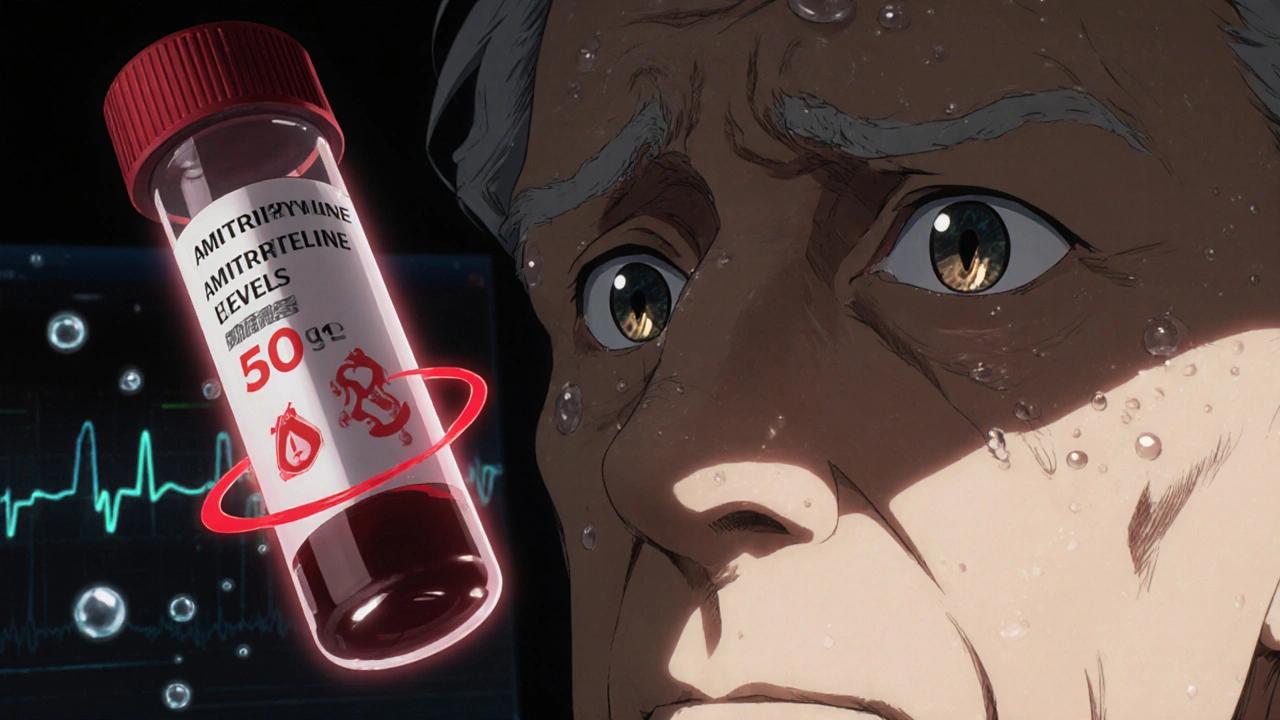
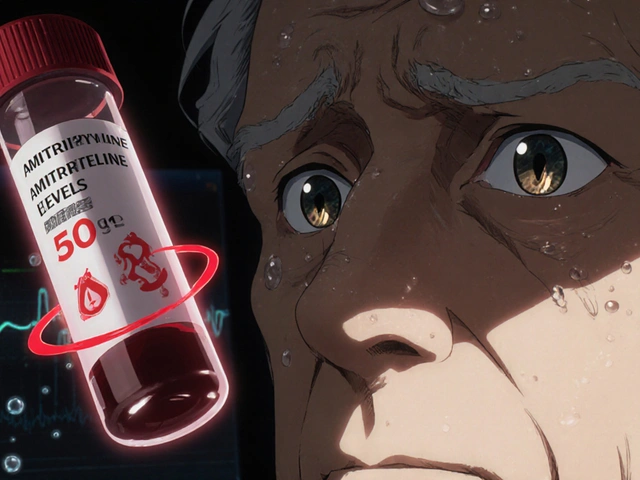
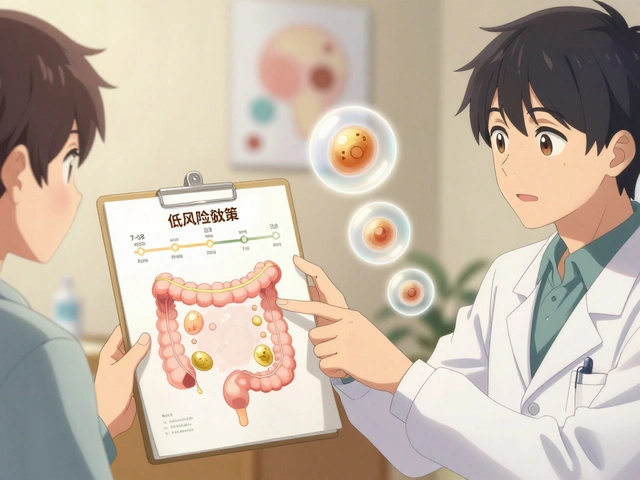
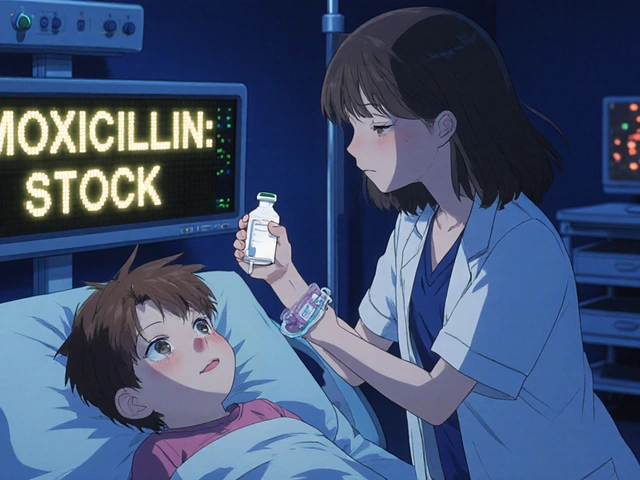
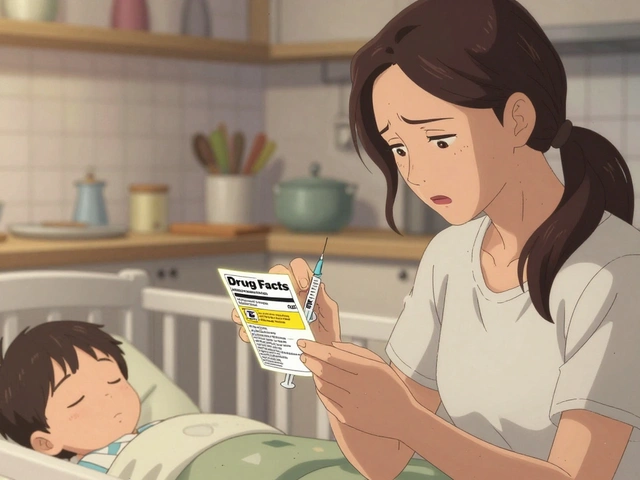
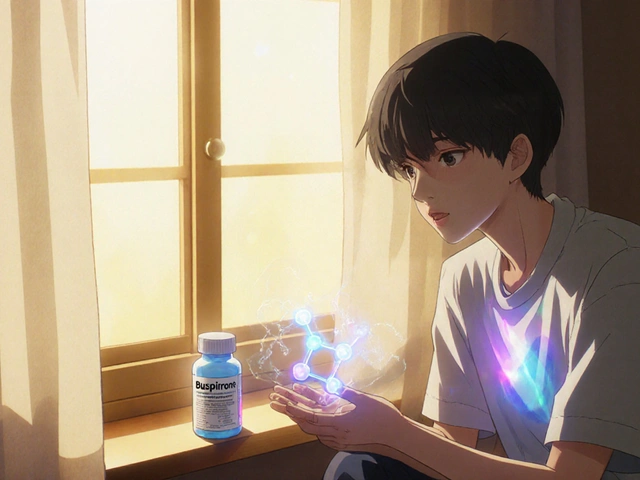
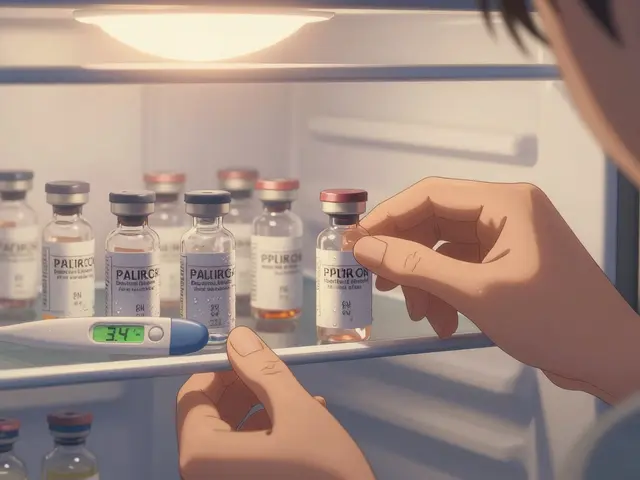
Write a comment
Your email address will be restricted to us